Teacher-Scholar Awards
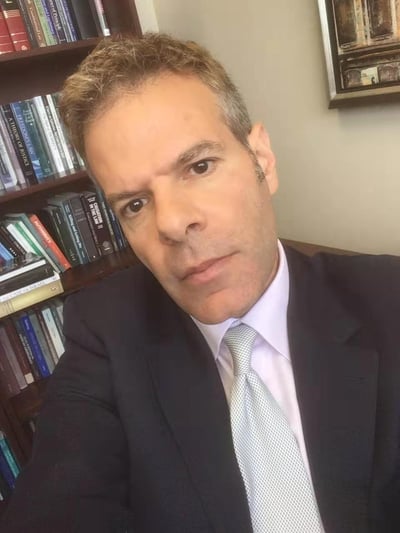
David Blankfein-Tabachnick
College of Law
David Blankfein-Tabachnick is a nationally recognized scholar of the private law, intellectual property, taxation and tax policy. His work developing a distributive justice approach to the private law has garnered national recognition. His foundational work appears in highly selective law reviews and peer edited journals. His most recent paper, “Maximizing Intellectual Property: Optimality, Synchronicity and Distributive Justice,” published in St. John’s Law Review, constructs a distributive justice framework for analyzing intellectual property within the law’s broader legal infrastructure for promoting innovation. The piece demonstrates that intellectual property law does not promote (or impede) innovation in isolation; taxation, bankruptcy and the like also impact incentives to innovate. The piece argues that to maximize the position of the least well-off in a Rawlsian fashion, one needs to consider intellectual property, taxation and transfer, and bankruptcy systems simultaneously. The path-breaking paper shows that what is optimal in any one area of law cannot, in principle, be determined in isolation.
Scholarly excellence informs Blankfein-Tabachnick’s pedagogy. In teaching such varied courses as bankruptcy, copyright, contracts, criminal law, federal income tax, intellectual property, legal and political theory, property, remedies, tax policy, torts, and trusts and estates, he demonstrates an encyclopedic knowledge of the material. His use of Socratic dialogue requires his students’ active engagement with the material: understanding the cases under study, the legal reasoning behind them and how that reasoning has potentially changed over time. By engaging directly with class material, his students learn to master complex ideas that serve them throughout their careers.
Blankfein-Tabachnick mentors many students individually, advising more than 40 in fulfilling their writing requirements and helping several others secure publication in national law journals, with one of them winning the prestigious National Law Review student writing competition.
As faculty adviser to the college’s journal, the Michigan State Law Review, Blankfein-Tabachnick has helped it rise 50 places in its national ranking and attract internationally renowned scholars from UC-Berkeley, Harvard, NYU, Stanford and University of Virginia law schools to publish and to visit the college.
For his exemplary record as a researcher, teacher and mentor, David Blankfein-Tabachnick is most deserving of the Michigan State University Teacher-Scholar Award.
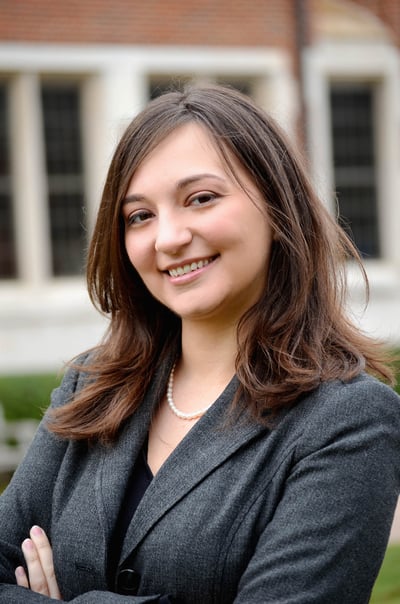
Alyssa Hadley Dunn
Department of Teacher Education
College of Education
Alyssa Hadley Dunn’s research, teaching and service center on issues of race, justice and equity, with a focus on urban teacher education and the sociocultural and political contexts of urban schools. The underlying focus across her professional activities is on how educational spaces — from K-12 schools to teacher education programs — can become more just and equitable for students and educators. Her research embodies three critical areas of persistent concern for the field: the sociopolitical contexts of teaching and teacher education, teachers’ experiences in urban schools and urban teacher preparation. Dunn’s scholarship spans these areas as she investigates educators’ personal, pedagogical and political ideologies. Because her work rests on the understanding that teachers’ working conditions are students’ learning conditions, her research into the substantial challenges facing teachers serves her overarching goal of improving educational opportunities for urban youth.
Within these broad areas, past examples of Dunn’s research include projects on teachers’ pedagogy in the wake of the 2016 presidential election, urban teacher morale and pedagogy, the connection between urban teachers’ experiences and neoliberal reforms, and racial equity and urban teacher preparation. In addition to publishing in top-tier journals (Journal of Teacher Education, Urban Education, and Teaching and Teacher Education), she is the author of “Teachers Without Borders? The Hidden Consequences of International Teachers in U.S. Schools,” which won the Outstanding Book Award from the National Association for Multicultural Education, and “Urban Teaching in America: Theory, Research and Practice in K-12 Schools.”
Dunn’s teaching takes many forms: instructor, adviser, mentor and program coordinator. Her research informs not only what she teaches, but also how she teaches—through hands-on, student-centered methods that encourage dialogue, critical teacher reflection and inquiry-based teacher education. Her approach to mentoring is an extension of her teaching pedagogy and models the attributes she believes future teachers and teacher educators should embody. In her short time at MSU, Dunn has developed and taught four graduate courses, advised eleven doctoral candidates and been awarded a Revolutionary Mentor Award from the top scholarly association in education.
For her deep commitment to research, mentoring and teaching as essential to the pursuit of equity and justice, Alyssa Hadley Dunn is most deserving of the Michigan State University Teacher-Scholar Award.
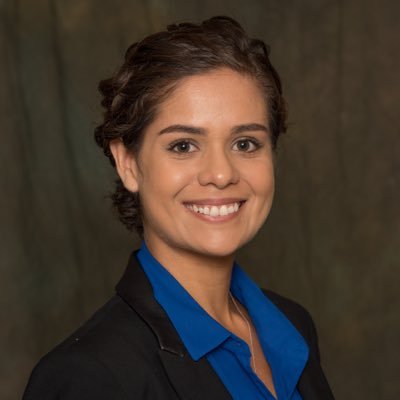
Rachel Mourão
School of Journalism
College of Communication
Arts and Sciences
Rachel Mourão studies how news narratives about politics are constructed and how journalism can improve in an era of declining media trust and fragmentation of political communication.
Two questions guide her scholarly work: What influences shape journalistic coverage of politics and how does fragmentation challenge the ways in which political news narratives are created and consumed?
Mourão’s projects have focused on political news narratives in the United States and Brazil, and have informed several projects aimed at strengthening Latin American and U.S. media through education and professional training. With her most recent work centering on right- and left-leaning political protests and elections, she is establishing herself as a major voice in the understanding, categorization, and managing of what many call “fake news.”
Additionally, Mourão has published more than 27 refereed journal articles, four book chapters and presented 39 conference papers. She has received grants from the U.S. State Department, Missions Brazil and the U.S. State Department, U.S. Embassy in Chile to train journalism students in Brasilia and Santiago.
Following a student-centered approach, Mourão has established herself as a significant teacher and mentor of undergraduates and graduate students and a critical guide and instructor to journalists in South America. She uses differentiated assignments — from online ethnographies to social media portfolios to academic essays — to allow her students to choose how to apply class theories and concepts in ways most relevant to their future careers. This approach not only makes learning more relevant and meaningful to them but also stimulates independent learning.
One of her doctoral students stated, “While working with Dr. Mourão, I have learned the full scholarly process, from conceptualizing a paper to collecting data and analyzing it, to writing up a manuscript, and getting the study published.”
To significant acclaim and appreciation, her MSU students sing her praises. To beleaguered journalists in Chile and Brazil, Professor Mourão and her other colleagues at the MSU School of Journalism bring increased levels of expertise and intensity of storytelling, not to mention significant hope for the development of freer reporting of the news in developing countries.
Rachel Mourão epitomizes the qualities of superior and innovative teaching, and her outstanding research and international service advances journalistic excellence throughout the world, making her most deserving of a Michigan State University Teacher-Scholar Award.
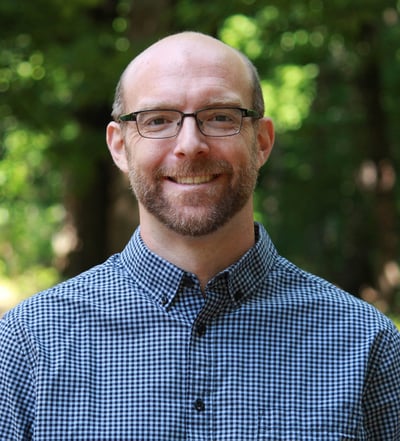
Peter J. T. White
Lyman Briggs College
Department of Entomology
College of Natural Science
Peter White’s research focuses on patterns of insect distribution across human-disturbed landscapes. Specifically, he investigates the drivers of moth Lepidoptera diversity, richness and abundance over moderate temporal and spatial scales to understand the management of habitat fragments to maximize moth biodiversity in forest fragments that have declined in recent decades. His research aims to improve understanding of how this habitat change affects the species that remain, using an assemblage-based framework to investigate how moth assemblages are shaped by landscape connectivity, intra-habitat disturbance, hostplant quality, matrix parameters, predator/parasitoid pressure and storm disturbances.
Jointly appointed in Lyman Briggs College and the Department of Entomology, White’s teaching responsibilities include introductory biology and a senior seminar in critical thinking at LBC and graduate entomology courses on insect genetics and teaching practices. He uses innovative teaching methodologies and maintains a robust education research program, exploring pedagogical approaches for and collecting learning data on evolution education, conceptual learning in biology, entomological basic studies and the integration of biology with other disciplines. He measures the impact of his classes to tweak his teaching approach, as needed, to achieve excellent educational outcomes and designs his labs to provide students with research experiences.
White's ability to engage and challenge his students, their positive responses to his teaching methods and content, and the effects those efforts have on student learning are outstanding. His students praise his flipped-classroom approach and its positive impact on their education. His focus on shrinking the divide between instructor and students has effectively engaged students with different learning styles and has made biology accessible to students from an array of academic backgrounds.
White is an effective mentor whose mentees speak highly of his enthusiasm, organization and ability to help them develop as science education instructors. When he teaches introductory biology, for example, he mentors teams of undergraduate learning assistants and graduate teaching assistants who help teach his inquiry-based labs. Over the past six years, he has included twenty-four undergraduates in his entomology and science education research program.
As a teacher-scholar who excels in undergraduate pedagogy and pedagogical development and who integrates his teaching and pedagogical research to advance student education, Peter White is clearly deserving of a Michigan State University Teacher-Scholar Award.
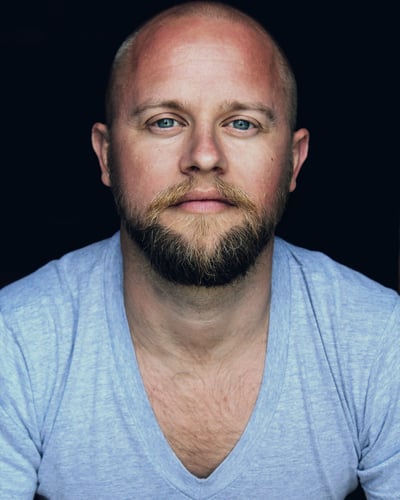
Bradley Harris Willcuts
Department of Theatre
College of Arts and Letters
Professor Bradley Harris Willcuts exemplifies the artist-teacher-scholar combination. Focused on developing new musical theater, his creative activity aligns perfectly with his MSU research. His most notable credits on Broadway as well as regionally and internationally have all been new musicals. His artistry has been witnessed in Europe in the new musical “Sherlock Holmes, The Legend” that premiered at the prestigious Karlin Musical Theatre in Prague and the recent production of “Porgy and Bess” at the Metropolitan Opera. He was a contributing author for the National Alliance for Musical Theatre in New York City and its recent online “Nuts and Bolts Guide for Creating New Musicals.” He is highly regarded as a professional musical theater director, choreographer and educator.
Willcuts brings his research into the classroom, where students effectively learn up-to-date practices. Discussions, coaching and critical analysis are ways he enhances education. Because of his excellent working relationships with New York-based artists, he regularly creates opportunities for students to collaborate with Broadway professionals in developing new musicals. This experience was in danger of suspension due to the pandemic, but Professor Willcuts’s expertise in online education informed his approach to this challenge. “Medusa,” this year’s ĭmáGen new musical selection, was performed virtually with twenty-one students, giving viewers an inside look at the work involved in developing a new musical. Shifting from staged reading to documentary film, the production followed Broadway directors, actors and choreographers collaborating with MSU musical theater and dance students, and local high school actors in the creation of the new musical “Medusa.”
Professor Willcuts was selected as an exemplary example of engaging course design for his Integrative Arts and Humanities class through the VOLTRON project and the Fintz Award for Excellence in Teaching for his course focused on providing a more kinesthetic education in social dance. He received a HUB Catalyst Innovation Grant to develop cutting-edge techniques in technological teaching, and a HUB Faculty Fellowship for transitioning those ideas to the online classroom.
For his commitment to innovating and rethinking pedagogy through technology and bringing the professional world of musical theater directly to his students, Bradley Harris Willcuts is most deserving of the Michigan State University Teacher-Scholar Award.
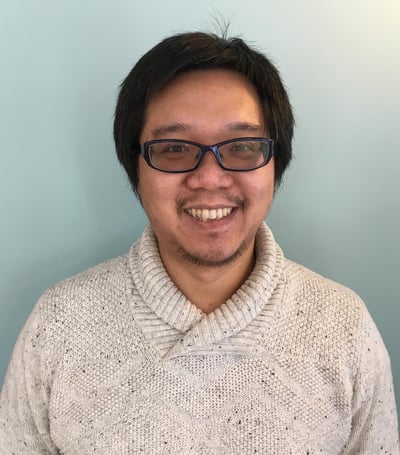
Willie Wai-Yeung Wong
Department of Mathematics
College of Natural Science
Willie Wai-Yeung Wong is a leader in the mathematics of nonlinear wave equations and geometrical problems arising in general relativity. His research focuses on the analysis of relativistic membranes, which are dynamic counterparts to minimal surfaces and illustrated by the shape a soap bubble will take when stretched over a loop of wire. Relativistic membranes revisit this concept on a cosmological scale, with the wire deforming and the cosmic soap bubble (the universe) dynamically deforming to keep up. Wong uses the structure of elliptic and hyperbolic equations posed on manifolds to attack geometric problems in general relativity and quasilinear wave equations to resolve key questions on relativistic membranes and shock formation, with applications to general relativity, cosmology and high-energy physics.
Wong melds his research with his teaching, pioneering innovative curricular reforms in the gateway calculus sequence. He spearheaded a complete revision of the second semester calculus course, restructuring it by flipping the lecture to free up class time to run team-based problem-solving sessions based on real-world problems. He incorporated his coding experience and secured an external grant to expand the labs to incorporate detailed problems arising from engineering, physics and chemistry. In the words of one student, “Before I participated in these labs, I never knew how much calculus was used outside of the classroom.”
Also, Wong is deeply dedicated to research mentoring, maintaining a web page that solicits REU (Research Experience for Undergraduates) students and suggests topic areas. He routinely leads groups through summer and in-semester research activities, the REU-exchange program, as professorial assistants, or in independent study. As a graduate and postdoc supervisor, Wong has a transformative impact. Long after his students have completed their projects, he continues to offer encouragement and advice on networking and career paths, breathing renewed enthusiasm into their research activities and filling them with confidence. One of his students has recently received an NSF Postdoctoral fellowship to continue building on his research.
For his contributions to mathematics that illuminate the structure of the cosmos, his dedication as a research mentor, and his remarkable innovations in teaching, Willie Wai-Yeung Wong is richly deserving of Michigan State University’s Teacher-Scholar Award.